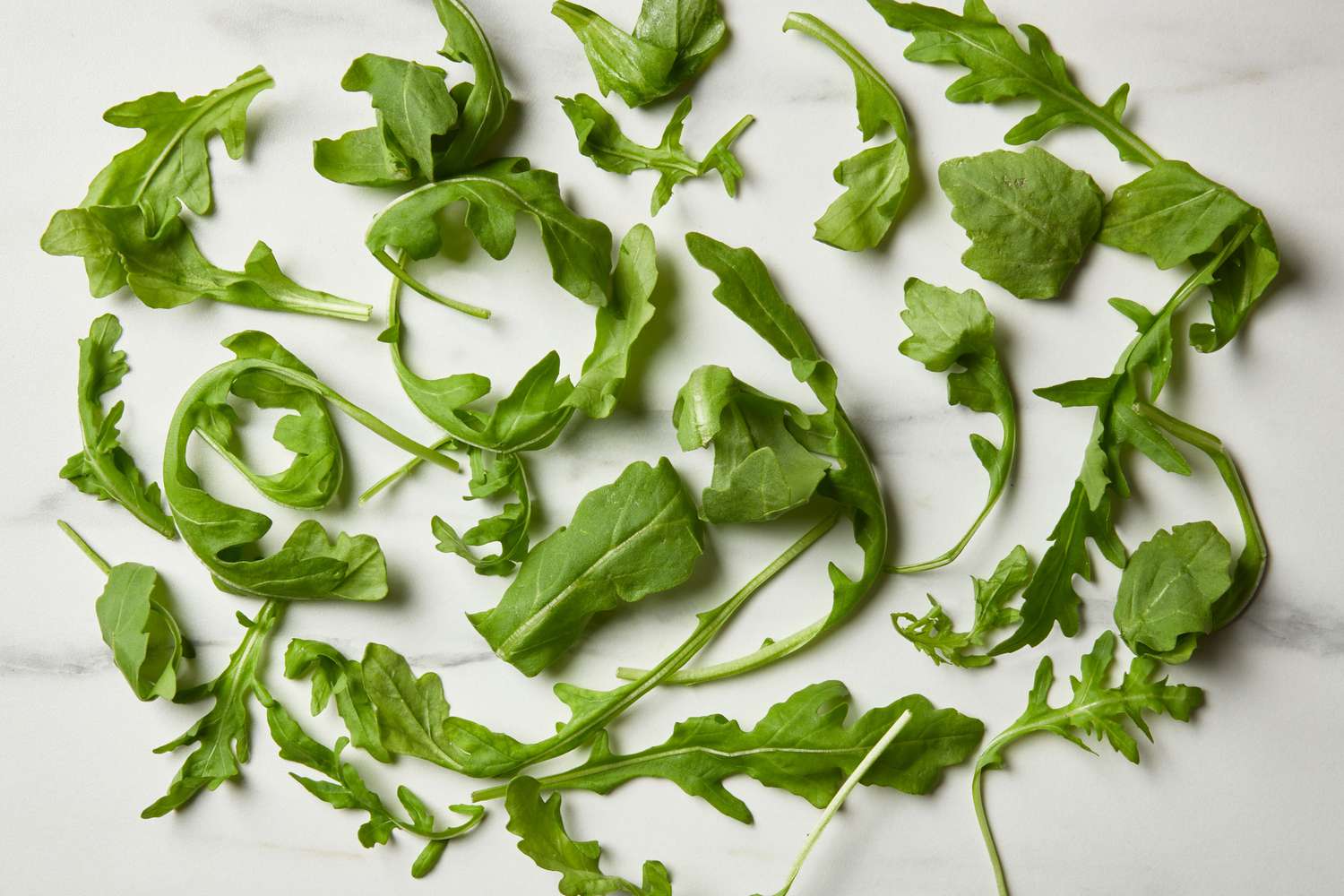
Arugula, also known as rocket or roquette, is a leafy green that packs a punch. This peppery plant has been a staple in Mediterranean diets for centuries. But what makes it so special? Arugula is not just a tasty addition to salads; it's a nutritional powerhouse. Rich in vitamins A, C, and K, it supports eye health, boosts the immune system, and helps with blood clotting. Plus, its high antioxidant content fights inflammation. Whether you're a foodie or a health nut, arugula deserves a spot on your plate. Ready to learn more? Here are 25 facts about this vibrant veggie.
Key Takeaways:
- Arugula, also known as rocket, is a leafy green with a peppery flavor. It's low in calories, high in vitamins, and offers health benefits like improved blood flow and digestive health.
- You can use arugula in salads, sandwiches, pizzas, and pesto. It's easy to grow at home and prefers cool weather. Harvest it when the leaves are big enough to eat, usually within 3-4 weeks.
What is Arugula?
Arugula, also known as rocket or roquette, is a leafy green vegetable that adds a peppery punch to salads and dishes. Its distinct flavor and nutritional benefits make it a popular choice among health enthusiasts.
- Arugula belongs to the Brassicaceae family, the same family as broccoli, kale, and cabbage.
- The scientific name for arugula is Eruca vesicaria.
- This leafy green is native to the Mediterranean region.
- Arugula has been cultivated since Roman times.
- It was traditionally used as both a vegetable and a medicinal herb.
Nutritional Benefits of Arugula
Arugula is packed with nutrients that contribute to a healthy diet. Here are some of the key nutritional benefits that make arugula a superfood.
- Arugula is low in calories, with only about 5 calories per cup.
- It is rich in vitamins A, C, and K.
- This green is a good source of folate, which is important for cell function and tissue growth.
- Arugula contains calcium, which is essential for bone health.
- It also provides potassium, which helps regulate blood pressure.
Health Benefits of Arugula
Beyond its nutritional content, arugula offers several health benefits that can improve overall well-being.
- Arugula is high in antioxidants, which help protect cells from damage.
- It has anti-inflammatory properties that can reduce the risk of chronic diseases.
- The nitrates in arugula can improve blood flow and reduce blood pressure.
- Arugula supports digestive health due to its high fiber content.
- It may help improve eye health thanks to its lutein and zeaxanthin content.
Culinary Uses of Arugula
Arugula's peppery flavor makes it a versatile ingredient in various dishes. Here are some popular ways to use arugula in cooking.
- Arugula is commonly used in salads, either alone or mixed with other greens.
- It can be added to sandwiches and wraps for extra flavor.
- Arugula makes a great topping for pizzas, adding a fresh, spicy kick.
- It can be blended into pesto for a unique twist on the classic sauce.
- Arugula can be sautéed and used as a side dish or mixed into pasta.
Growing Arugula
Growing arugula at home is relatively easy, making it a favorite among gardeners. Here are some tips for cultivating this leafy green.
- Arugula grows best in cool weather, making it ideal for spring and fall planting.
- It prefers well-drained soil with a pH between 6.0 and 7.0.
- Arugula seeds can be sown directly into the garden or started indoors.
- The plant requires regular watering to keep the soil moist.
- Arugula can be harvested as soon as the leaves are large enough to eat, usually within 3-4 weeks of planting.
The Final Crunch
Arugula isn't just a leafy green; it's a powerhouse of nutrients and history. Packed with vitamins A, C, and K, it boosts your immune system and keeps bones strong. Its peppery flavor adds a unique twist to salads, pizzas, and even smoothies. Originating from the Mediterranean, arugula has been enjoyed for centuries, from ancient Rome to modern kitchens.
This versatile green also offers antioxidants that fight inflammation and improve heart health. Plus, it's low in calories, making it a great addition to any diet. Whether you're a foodie or just looking to eat healthier, arugula brings both taste and nutrition to the table.
So next time you're at the grocery store, grab a bunch of arugula. Your taste buds and body will thank you. Happy munching!
Frequently Asked Questions
Was this page helpful?
Our commitment to delivering trustworthy and engaging content is at the heart of what we do. Each fact on our site is contributed by real users like you, bringing a wealth of diverse insights and information. To ensure the highest standards of accuracy and reliability, our dedicated editors meticulously review each submission. This process guarantees that the facts we share are not only fascinating but also credible. Trust in our commitment to quality and authenticity as you explore and learn with us.


